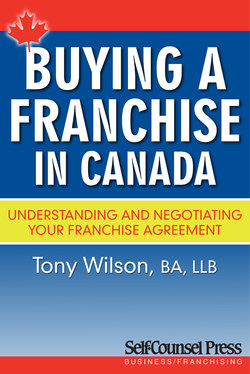Читать книгу Buying a Franchise in Canada - Tony Wilson - Страница 24
На сайте Литреса книга снята с продажи.
6. Limited Liability Company
ОглавлениеOften, the franchisee will be a limited liability company, which is also called a corporation. A limited liability company is a distinct legal entity that exists at law separately from its shareholders, officers, and directors. This means that the shareholders, officers, and directors of a company are not personally responsible for the debts and obligations of their company unless they specifically agree to be responsible for such debts and obligations (e.g., by way of a personal covenant or personal guarantee).
In very limited circumstances, certain statutes (particularly environmental and tax statutes) can impose personal liability on directors, shareholders, and officers of a company, making such persons liable for the company’s debts, although this “piercing of the corporate veil” is not common.
The issue here is that you would probably prefer not to sell the house and liquidate the RRSPs if the venture fails. By incorporating a limited liability company and operating the franchised business through that company, personal liability for the company’s debts can be minimized, unless you agreed to assume those liabilities personally by way of a guarantee or personal covenant.
There are also tax-planning reasons why a franchised business such as this one might be operated through a company (i.e., dividends are treated differently for tax purposes than employment income from wages, and there are potential tax planning strategies that are better suited to a corporate entity).
Another reason why a company is often used as the franchisee has to do with banks; banks and other commercial lenders sometimes require their business loans to be made to corporations, even though the borrower may be borrowing the money in his or her personal capacity for an inexpensive franchise. The bank’s lending policies may require that the loan originate from its commercial loans department, rather than from the personal loans department (the latter handling your mortgage or car loan).
The commercial loans department makes all of its loans to corporations; so they normally require you to be incorporated because that’s what the department is streamlined to do. The bank’s own internal policies may dictate that you have to use a company so that it can loan to your company.
Sometimes, the franchisor will require the franchisee to be a living, breathing person (or persons), not a company. However, the “individual” franchisee will be permitted to assign and transfer the franchise agreement to a company that he or she personally owns. This is one way the franchisor can obtain a personal covenant, like a guarantee, where a living, breathing person (and not an inanimate entity like a corporation) signs on the dotted line and puts themselves personally “on the hook” for any money owing to the franchisor.
